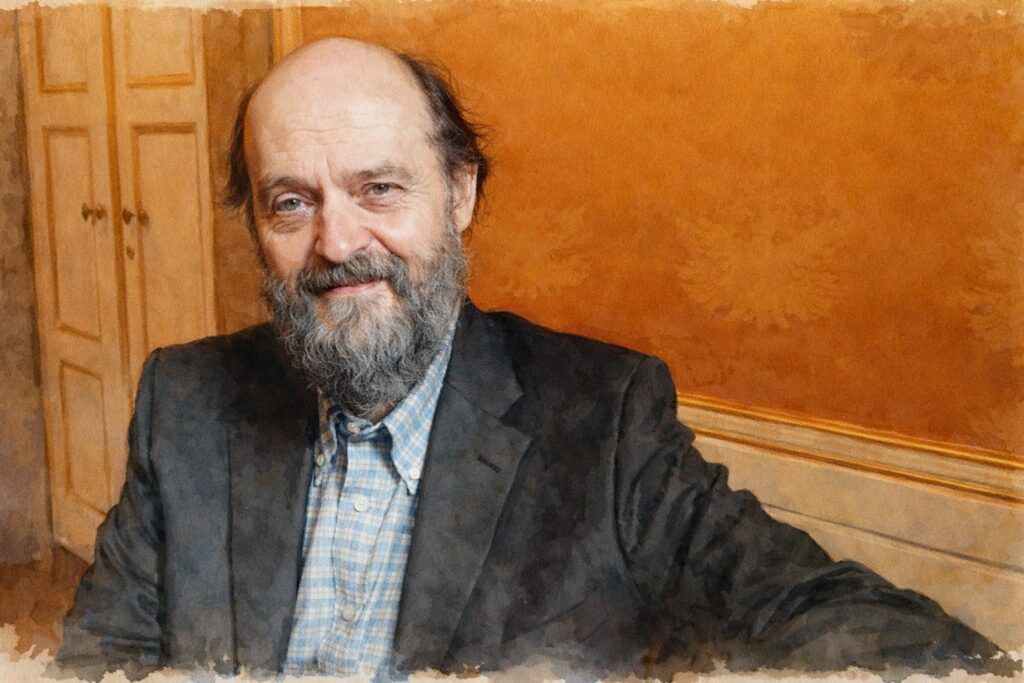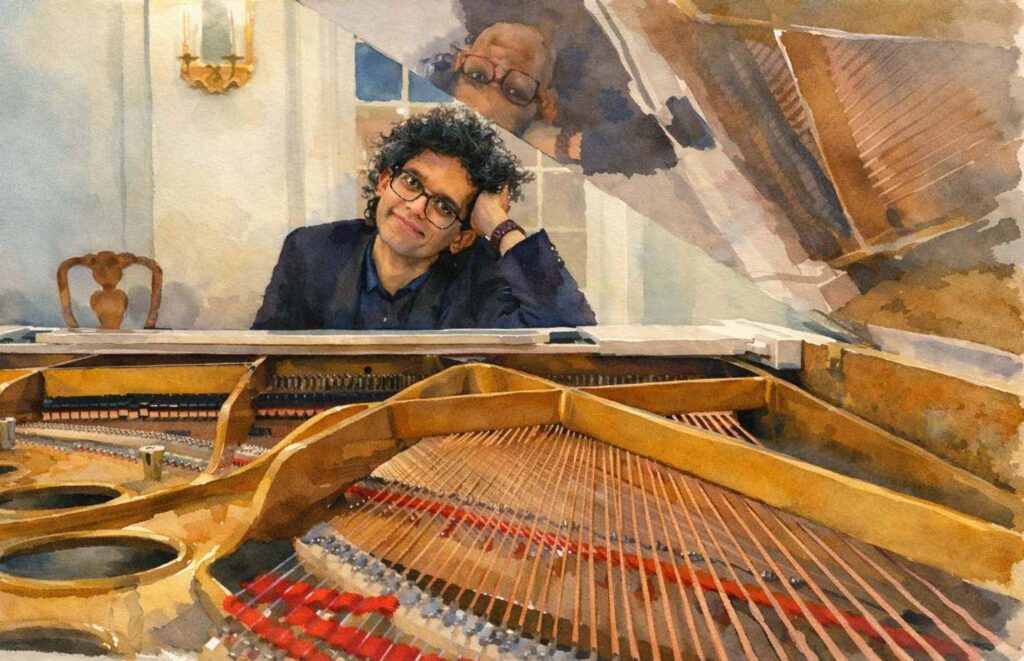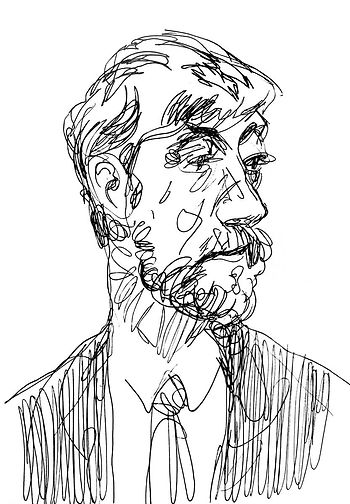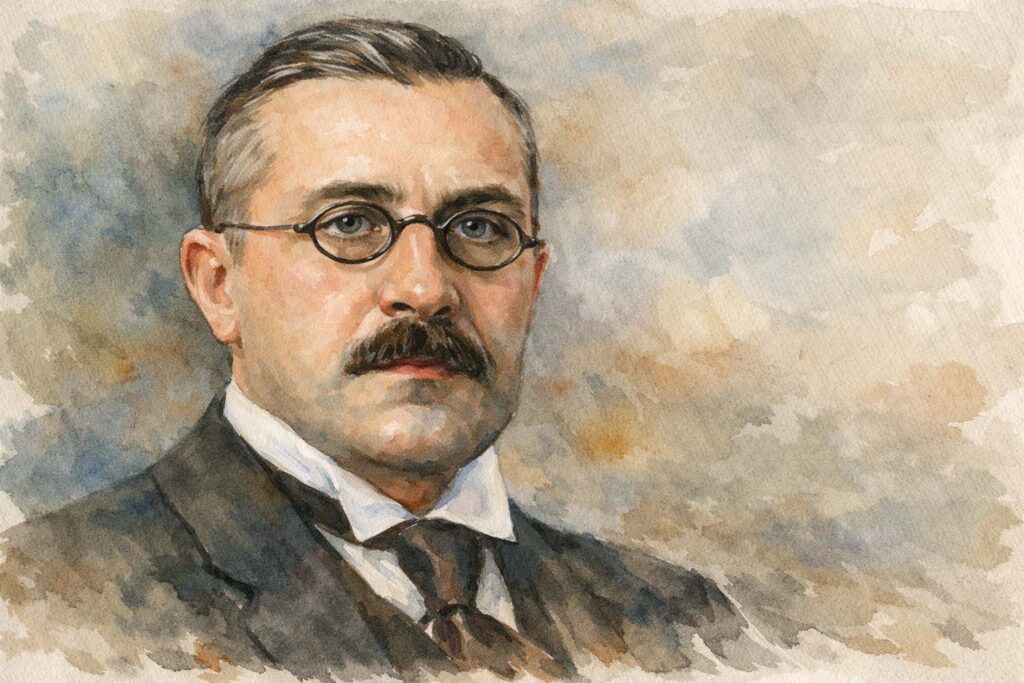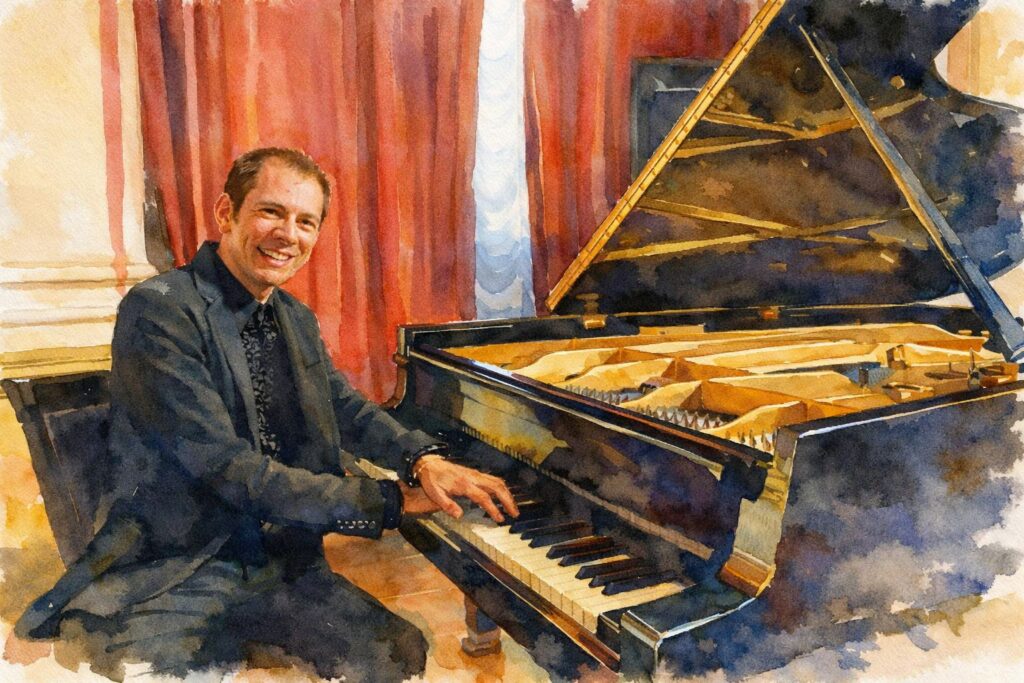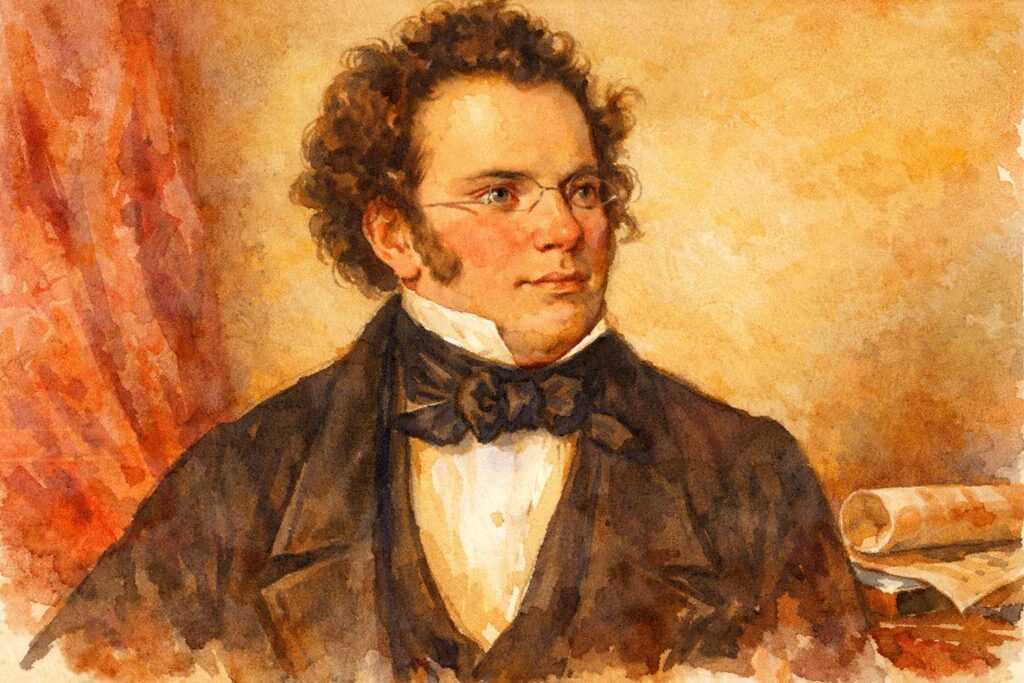The Mystery of Bach’s Birth Date: March 21 or March 31?
Johann Sebastian Bach was born in Eisenach, Germany, in 1685, but there is confusion about whether his birth date was March 21 or March 31. The discrepancy arises due to the switch from the Julian to the Gregorian calendar.
- March 21, 1685 (Julian calendar) – The date used at the time of his birth in Germany.
- March 31, 1685 (Gregorian calendar) – The date adjusted according to the modern calendar system.
Since Germany was still using the old Julian calendar in Bach’s time, his baptismal record shows March 21 as his birth date. However, after the calendar reform, his birth is often cited as March 31 in modern references.
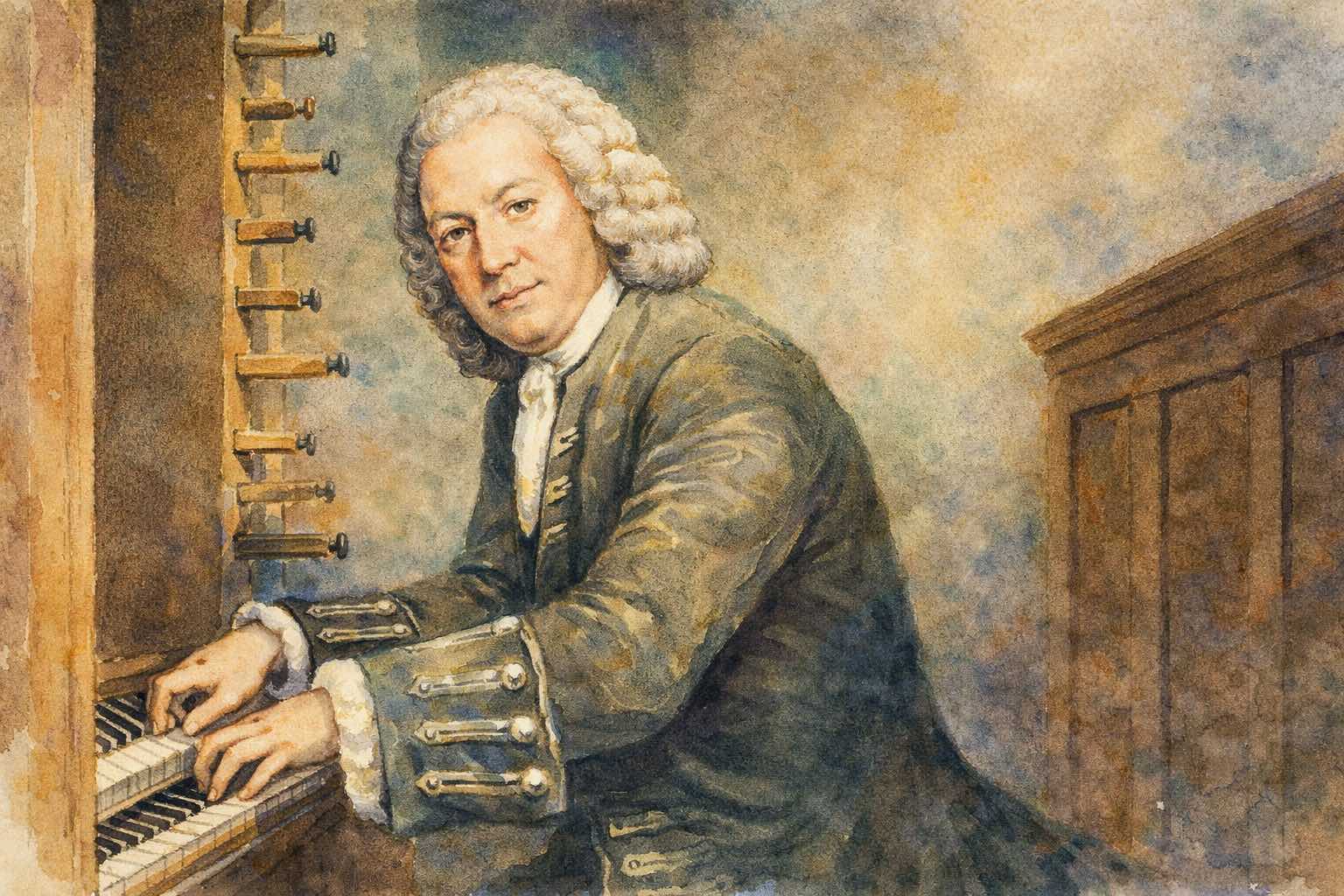
Bach’s Family and Early Life
Bach was born into a family of musicians in Eisenach, in what was then the Duchy of Saxe-Eisenach. Life in late 17th-century Germany was shaped by the aftermath of the Thirty Years’ War (1618–1648), a conflict that left much of the region economically and socially devastated. Despite this, the Bach family was relatively well-off, thanks to their status as professional musicians.
Bach’s father, Johann Ambrosius Bach, was a court trumpeter and town musician, and his uncles were also professional musicians. Music was deeply embedded in the family tradition—so much so that for nearly two centuries, the name “Bach” was almost synonymous with “musician” in central Germany.
Tragically, Bach was orphaned at age 10 when both his parents died within a year of each other. He went to live with his older brother, Johann Christoph Bach, in Ohrdruf, who gave him his first formal lessons in keyboard playing and composition.
Who Taught Bach Music?
Though largely self-taught, Bach’s musical education came from several sources:
- His older brother, Johann Christoph Bach, who taught him harpsichord and organ.
- Studying scores of great composers like Pachelbel and Froberger, which he secretly copied by candlelight.
- His time at St. Michael’s School in Lüneburg, where he was exposed to North German organ traditions.
- Encounters with famous musicians of his time, such as Dieterich Buxtehude, whose dramatic organ music and improvisational style greatly influenced Bach.
Major Life Events: Marriage, Family, and Career
Bach’s life was marked by significant professional and personal milestones:
- 1703 – Landed his first job as a court musician in Weimar.
- 1707 – Married his first wife, Maria Barbara Bach, and became an organist in Mühlhausen.
- 1708 – Moved to Weimar as an organist and court musician, composing some of his most famous organ works.
- 1717 – Hired as Kapellmeister (music director) at the court of Prince Leopold in Köthen, where he composed many of his instrumental masterpieces, including the Brandenburg Concertos.
- 1720 – Maria Barbara died suddenly.
- 1721 – Married his second wife, Anna Magdalena Wilcke, a talented singer, who helped him compile his famous Notebook for Anna Magdalena Bach.
- 1723 – Moved to Leipzig as the Thomaskantor (Director of Music at St. Thomas Church), where he composed most of his great sacred choral works, including the St. Matthew Passion and Mass in B Minor.
Bach fathered 20 children, though only 10 survived into adulthood. Several of them became important composers, including Carl Philipp Emanuel Bach, Wilhelm Friedemann Bach, and Johann Christian Bach.
Who Influenced Bach the Most?
Bach was influenced by a wide range of composers from Germany and beyond. His biggest musical inspirations included:
- Dieterich Buxtehude – His organ compositions deeply impacted Bach’s style, so much so that Bach once walked over 400 kilometers (250 miles) to Lübeck just to hear him play.
- Johann Pachelbel – Best known for Canon in D, Pachelbel was a family friend and influenced Bach’s early keyboard writing.
- Antonio Vivaldi – Bach transcribed many of Vivaldi’s violin concertos for keyboard, absorbing the Italian composer’s rhythmic drive and harmonic clarity.
- Heinrich Schütz – A major influence on Bach’s sacred music, especially in his use of choral polyphony.
When and How Did Bach Become Famous?
During his lifetime, Bach was highly respected as an organist and improviser, but his compositions were seen as too complex and old-fashioned by some. By the late 18th century, his music had fallen into relative obscurity.
However, in 1829, composer Felix Mendelssohn led a revival of Bach’s music by conducting the first modern performance of the St. Matthew Passion in Berlin. This event reintroduced Bach’s genius to the world and sparked a resurgence of interest in his compositions. From that point on, Bach was increasingly recognized as one of the greatest composers in history.
Must-Listen Pieces by Bach
If you want to experience the brilliance of Bach, here are some essential works:
- The Well-Tempered Clavier (Books 1 & 2) – A groundbreaking collection of 48 keyboard pieces that explore all major and minor keys.
- Brandenburg Concertos – Six masterful orchestral works showcasing Bach’s skill in instrumental writing.
- Toccata and Fugue in D Minor – One of the most famous organ pieces ever written.
- St. Matthew Passion – A powerful choral work that tells the story of Christ’s crucifixion.
- Goldberg Variations – A masterpiece of keyboard variations, displaying Bach’s genius in melody and structure.
- Mass in B Minor – A monumental sacred work that many consider the pinnacle of Baroque choral music.
Fun Fact About Bach
Bach was obsessed with numbers and hidden messages in music. He often used numerology in his compositions, particularly with his own name.
- In German musical notation, B-A-C-H corresponds to B-flat, A, C, B-natural.
- Bach frequently embedded this motif into his music as a secret signature.
This fascination with numbers and codes has led scholars to find hidden patterns in many of his works, adding another layer of mystery to his already extraordinary music.
Johann Sebastian Bach was not just a composer; he was a musical architect who shaped the course of Western music. His works continue to inspire musicians, scholars, and listeners more than 300 years after his birth, proving that true genius is timeless.
You can listen to J.S Bach masterpieces and may more incredible keyboard works in our Playlist “Klaverimuusika”
#JohannSebastianBach #Bach #ClassicalMusic #BaroqueMusic #BachBirthday #MusicHistory #GreatComposers #BachFamily #BachWorks #BrandenburgConcertos #StMatthewPassion #WellTemperedClavier #ToccataAndFugue #BachRevival #FelixMendelssohn #OrganMusic #BaroqueComposer #MusicalGenius #BachLegacy
